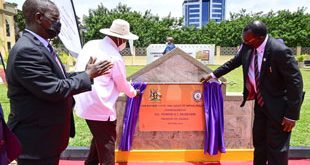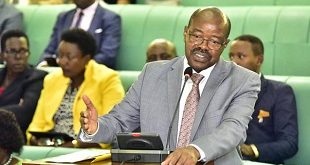
Kampala, Uganda | THE INDEPENDENT | The deputy speaker of parliament Jacob Oulanyah has directed the Minister of Science and Technology Elioda Tumwesigye to retable the National Biotechnology and Biosafety Bill, 2012 which President Yoweri Museveni declined to sign into law.
The bill which seeks to provide a regulatory framework that facilitates the safe development and application of biotechnology, research, development and release of genetically modified organisms in Uganda was rejected by the president.
In his communication to the house, Oulanyah read to Members of Parliament a letter dated December 21 that the president wrote to Speaker of Parliament Rebecca Kadaga, explaining why he is sending the bill back to parliament for clarity.
Museveni wanted parliament to clarify on other aspects of genetic engineering such as setting out the boundary of the technology to crops and animals with no crossover to human beings, labeling of GMOs and wonders why there is a plan to have genetically modified materials in the irrigated areas of Mobuku Irrigation Scheme.
Oulanyah said the bill should be retabled. “The person responsible for the bill should bring the original text of the bill as sent to the president and lay it on the table. The committee should then use two weeks and report back to the House.”
The nation’s scientists are embroiled in arguments for and against the National Biotechnology and Biosafety Bill, 2012 commonly known as the GMO Bill.
Last month, President Museveni rejected the bill and wrote a letter to the Speaker saying a number of issues in the bill must first be clarified.
These included its title, patent rights of indigenous farmers and sanctions for scientists who mix GMOs with indigenous crops and animals.
The president offered his thoughts: “some crops and livestock with unique genetic configuration like millet, sorghum, beans, Ankole cattle, Ugandan chicken, enkoromoijo cattle, which have a specific genetic makeup which our people have developed for millennia through selection (kutorana for seeds, kubikira (selecting good bulls), enimi or empaya (he-goats).”
He added, “to be on the safe side, GMO seeds should never be randomly mixed with our indigenous seeds just in case they turn out to have a problem.” Museveni’s letter provoked a wave of arguments for those backing the bill, and their counter arguments.
 The Independent Uganda: You get the Truth we Pay the Price
The Independent Uganda: You get the Truth we Pay the Price

